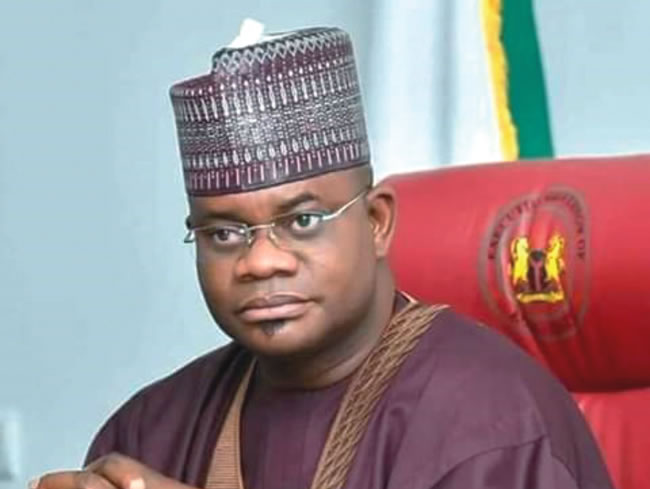The legacy of Alhaji Yahaya Adoza Bello’s governance in Kogi, spanning from January 27, 2016, to January 27, 2024, has undergone meticulous scrutiny in a comprehensive review by the National Coordinator of Democratic Values and Good Governance Advocacy Forum, Prof. Mainasara Isah Katagum.
In his extensive examination, he disclosed that the “review aimed to illuminate the accomplishments and nuances of Bello’s tenure through a clinical comparative analysis, deploying a pair review mechanism to advance democratic values”.
The academic don in a statement forwarded to TRIBUNE ONLINE on Sunday, said that Kogi, nestled in North Central Nigeria and established on August 27, 1991, alongside other states, witnessed the divine orchestration of Bello’s emergence as its governor, adding Bello acknowledging the bestowed responsibility, “he embraced the daunting task, emerging as the youngest governor in the country at that time. His leadership characteristically addressed substantial challenges faced by the state, including security issues, an inflated civil service, and economic strains heightened by the global recession”.
The text of the review he tagged series 1 reads, “Between 2015 and 2022, Kogi State encountered diverse challenges, which Bello viewed as opportunities to showcase his competence, capacity, and exceptional leadership acumen. This series marks the commencement of a comparative analysis, focusing initially on Lokoja, the state’s capital, and subsequently shifting its spotlight to Kogi East, Kogi, Central, and Kogi West.
“The rejuvenation of Lokoja began with the construction of the Ganaja Junction flyover/interchange, alleviating persistent gridlock in the state capital. This vital project, connecting the Northern and Southern parts of Nigeria, contributed significantly to smoother traffic flow, even during festive periods.
“Other noteworthy achievements in Lokoja encompassed the complete reconstruction and modernization of the Kogi State Specialist Hospital, the rehabilitation of main and link roads within the Lokoja Township, the enhancement of the River Niger embankment, and the construction of an ultra-modern Revenue House—the first of its kind in North Central Nigeria. The Greater Lokoja Water Board also underwent an upgrade, securing improved water provision for the city.
“Education received a boost through the establishment of the GYB Model Science Secondary School in Adankolo, Lokoja, equipped with modern facilities rivaling tertiary institutions. The remodeling of roundabouts, the complete reconstruction of Lugard House (Government House), and the total overhaul of the Kogi State Polytechnic in Lokoja further reflected Bello’s commitment to creating a conducive environment for working efficiency and educational excellence.
“Agricultural empowerment took center stage with the purchase and distribution of mechanized agricultural equipment, fortifying Kogi State’s position as the nation’s food basket. Bello’s financial acumen is evident in the state’s commendable domestic debt profile, maintaining one of the lowest figures in Nigeria.
“In the face of challenges plaguing other states, Kogi stood firm against unscrupulous elements and criminals under Bello’s leadership. Security became a top priority, with the former governor leading from the front to curb crimes and criminality in the state.
“Recognised for his transparent and accountable governance, Alhaji Yahaya Bello earned several awards in the realms of security, good governance, and financial transparency. Kogi State, under his leadership, showcased its financial records online, fostering public accessibility and scrutiny through the Kogi State Verifiable portal.
“Noteworthy achievements also extended to the city, with the establishment of the Muhammadu Buhari Civic Center, road construction initiatives, provisions of farming tools, and the construction of the GYB Model Science Secondary School. The complete reconstruction of Lugard House further underscored the transformative impact on the state’s seat of power.
“As Series II of the Comparative Analysis approaches, the focus will shift to Kogi East, promising further insights into the multifaceted impact of Bello’s governance on the diverse regions of Kogi State.”
